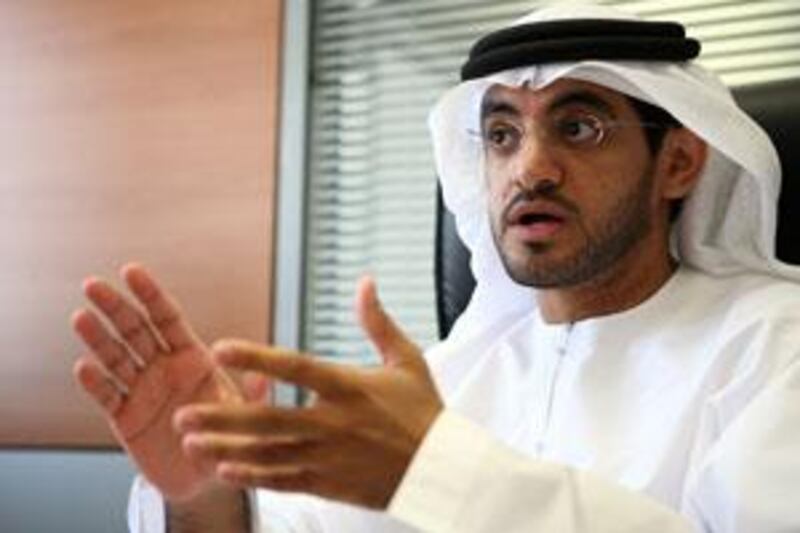ABU DHABI // More than 50,000 homes will be built for Emiratis over the next 20 years, the Abu Dhabi Urban Planning Council (UPC) said yesterday. Tens of thousands of Emiratis have applied for government housing and the waiting list is up to five years long, so the announcement was warmly welcomed and heralds much needed relief to a housing crisis that has resulted in spectacular rent increases and forced many people to commute from cheaper areas, such as Buraimi in Oman.
About 30,000 houses will be constructed in Abu Dhabi and 20,000 in Al Ain at an initial cost of Dh25 billion (US$6.8bn) in the first three years. Both cities suffer from an acute shortage of housing, with demand estimated to exceed supply by a third, with the result being that house prices and rents have soared by as much as 80 per cent in 12 months. Falah al Ahbabi, the general manager of the UPC, said the Government currently had Dh25bn to develop infrastructure and public housing for Emiratis over the coming two to three years.
But he emphasised that the long-term budget for Emirati housing was "much greater than Dh25bn". The initial projects in Abu Dhabi include 5,000 houses in Al Falah, 10,500 plots in Shamkha South Shamkha, about 13,000 in Al Wathba and 2,000 to 3,000 in central Shamkha. In the Al Falah development, which is the furthest advanced, the houses are being built by Aldar Properties and are scheduled for completion next year.
Mr al Ahbabi said the Government was reviewing the project and would soon sign a formal deal with the developer. "People will be able to live there by the end of 2010," he said. Projects in Al Ain include more than 6,000 units to be built by Al Qudra Real Estate in Ain Al Fayda, while Tamouh, another developer, is to deliver more than 3,000 in the Jebel Hafeet area. Sorouh Real Estate will develop 2,000 to 3,000 units in Abu Dhabi.
"It is not like we are building and then the people will come," said Mr al Ahbabi. "There are already 15,000 applications right now for Emirati buildings. Emirati housing is the most important item for us right now. It is a hot topic." Emiratis yesterday welcomed the locations of the planned projects and said they would provide greater choice for those looking for accommodation. Jumaa Ahmad, a lorry driver who lives in Al Bahia, said the location of the new houses would be popular among Emiratis.
"They should build more projects in such areas, because we Emiratis are Bedouins. "We like the desert. Cities are good for businessmen and city dwellers, but we prefer to live in areas like Shamkha. "It is never too late to find homes for us, but a lot of the houses we build, we eventually rent out to expatriates and then we complain that we can't find anywhere to live." "It's a good idea," added Amal al Braiki, who works in Abu Dhabi and lives in Al Ain with her parents.
"The rent in the city of Abu Dhabi is very high, especially if you want a spacious house in good condition. "Us Emiratis like big houses, even if we don't have big families, because we always keep in mind if we have extended family staying over. We won't be happy with just a one-bedroom apartment. "Right now, the trend is that you either live with your parents or you apply for a house from the Government."
It will not be known until later whether Emiratis will be provided with free homes in the new communities or will have to pay for their properties. The UPC said that in cases where Emiratis were buying, they would be given assistance with finding a home loan. No estimate of the probable prices of the houses was available. According to the estate agency Cornerstone, demand for house purchases among Emiratis is holding up, despite the weakness in the housing market.
"The local market is doing very well," said Ziad Bushnaq, the chief executive. "We are working with Al Qudra on villas in Ain al Fayda. Around 70 per cent of what we sold in February was local." talramahi@thenational.ae ngillet@thenational.ae






